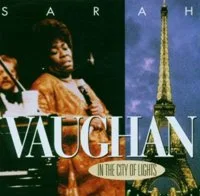Year: 1954
File: MP3@320K/s
Time: 78:22
Size: 180,7 MB
Art: Front
(3:52) 1. Red Rose
(4:35) 2. A Mountain Sunset
(2:42) 3. Laffin' and Cryin'
(5:08) 4. Minor Encamp
(3:02) 5. Subscription
(3:34) 6. Dillon
(5:09) 7. Burt's Pad
(2:52) 8. Chicago
(3:00) 9. Autobuzz
(2:03) 10. Indiana
(3:30) 11. Get Ou Of Town
(4:28) 12. 'Tis Autumn
(4:27) 13. Thomasia
(6:08) 14. My Heart Stood Still
(4:53) 15. Fat Shoes
(5:25) 16. I'll Take Romance
(4:42) 17. Escale A Victoria
(4:03) 18. The Things We Did Last Summer
(4:40) 19. Just 40 Bars
A veteran drummer long overshadowed by others, but finally gaining recognition for his talents and versatility, Roy Haynes has been a major player since the 1940s. He worked early on with the Sabby Lewis big band, Frankie Newton, Luis Russell (1945-1947), and Lester Young (1947-1949). After some engagements with Kai Winding, Haynes was a member of the Charlie Parker Quintet (1949-1952); he also recorded during this era with Bud Powell, Wardell Gray, and Stan Getz. Haynes toured the world with Sarah Vaughan (1953-1958); played with Thelonious Monk in 1958; led his own group; and gigged with George Shearing, Lennie Tristano, Eric Dolphy, and Getz (1961). He was Elvin Jones' occasional substitute with John Coltrane's classic quartet during 1961-1965, toured with Getz (1965-1967), and was with Gary Burton (1967-1968). In addition to touring with Chick Corea (1981 and 1984) and Pat Metheny (1989-1990), Haynes has led his own Hip Ensemble on and off during the past several decades. When one considers that he has also gigged with Miles Davis, Art Pepper, Horace Tapscott, and Dizzy Gillespie, it is fair to say that Haynes has played with about everyone.
He led dates for EmArcy and Swing (both in 1954), New Jazz (1958 and 1960), Impulse (a 1962 quartet album with Roland Kirk), Pacific Jazz, Mainstream, Galaxy, Dreyfus, Evidence, and Storyville. In 1994, Haynes was awarded the Danish Jazzpar prize, and two years later, he received the prestigious French Chevalier des l'Ordres Artes et des Lettres. In the late '90s, Haynes formed a trio with pianist Danilo Perez and bassist John Pattitucci, and they released their debut album, The Roy Haynes Trio Featuring Danilo Perez & John Pattitucci, in early 2000 on Verve. Haynes' son Graham is an excellent cornetist. Haynes paid tribute to Charlie Parker in 2001 with Birds of a Feather, his fourth release for the Dreyfus Jazz label, which was subsequently nominated for a Grammy in 2002; Fountain of Youth followed two years later. Also released in 2004, Quiet Fire compiled two of his prior releases for Galaxy (1977's Thank You Thank You and 1978's Vistalite) into one back-to-back record. Whereas appeared in mid-2006, and it earned Haynes a Grammy nomination for Best Jazz Instrumental Solo.~Scott Yanowhttps://www.allmusic.com/artist/roy-haynes-mn0000290464/biography
Personnel: Baritone Saxophone – Jay Cameron; Bass – Jean-Marie Ingrand, Joe Benjamin; Drums – Jean-Louis Viale, Roy Haynes; Guitar – Jimmy Gourley , René Thomas; Piano – Henri Renaud; Tenor Saxophone – Barney Wilen, Frank Foster; Trumpet – Buzz Gardner
He led dates for EmArcy and Swing (both in 1954), New Jazz (1958 and 1960), Impulse (a 1962 quartet album with Roland Kirk), Pacific Jazz, Mainstream, Galaxy, Dreyfus, Evidence, and Storyville. In 1994, Haynes was awarded the Danish Jazzpar prize, and two years later, he received the prestigious French Chevalier des l'Ordres Artes et des Lettres. In the late '90s, Haynes formed a trio with pianist Danilo Perez and bassist John Pattitucci, and they released their debut album, The Roy Haynes Trio Featuring Danilo Perez & John Pattitucci, in early 2000 on Verve. Haynes' son Graham is an excellent cornetist. Haynes paid tribute to Charlie Parker in 2001 with Birds of a Feather, his fourth release for the Dreyfus Jazz label, which was subsequently nominated for a Grammy in 2002; Fountain of Youth followed two years later. Also released in 2004, Quiet Fire compiled two of his prior releases for Galaxy (1977's Thank You Thank You and 1978's Vistalite) into one back-to-back record. Whereas appeared in mid-2006, and it earned Haynes a Grammy nomination for Best Jazz Instrumental Solo.~Scott Yanowhttps://www.allmusic.com/artist/roy-haynes-mn0000290464/biography
Personnel: Baritone Saxophone – Jay Cameron; Bass – Jean-Marie Ingrand, Joe Benjamin; Drums – Jean-Louis Viale, Roy Haynes; Guitar – Jimmy Gourley , René Thomas; Piano – Henri Renaud; Tenor Saxophone – Barney Wilen, Frank Foster; Trumpet – Buzz Gardner
The 1954 Paris Sessions




















